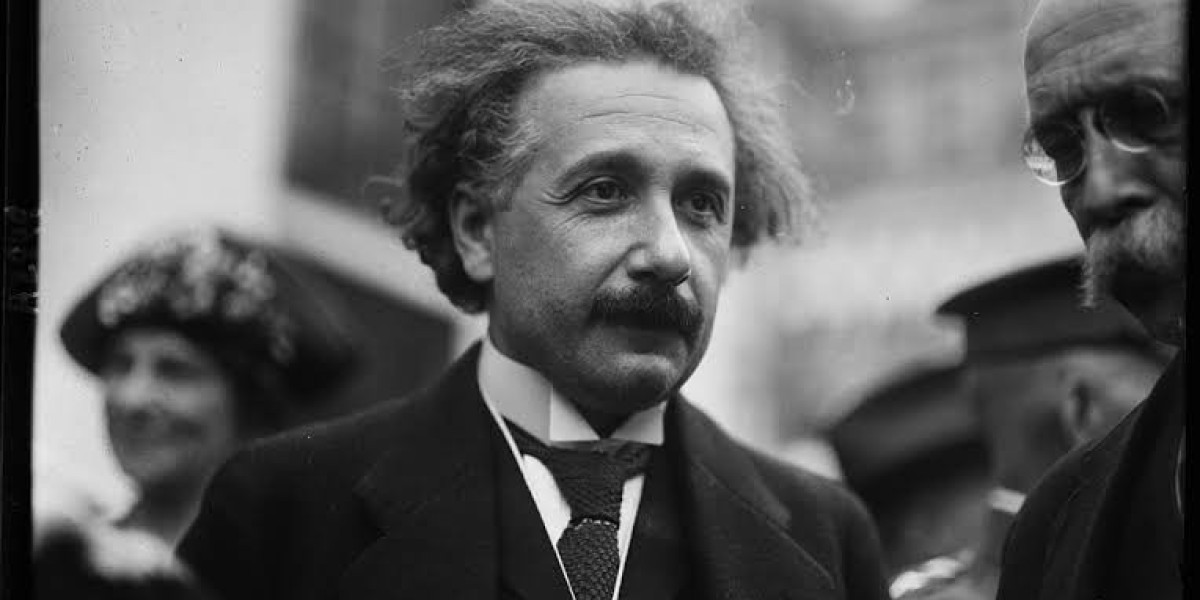In the pantheon of scientific giants, few figures loom as large or as luminously as Albert Einstein. His name has become synonymous with genius, his face a global icon, and his theories the bedrock of modern physics. A man of profound thought, insatiable curiosity, and a deeply felt humanism, Einstein not only reshaped our understanding of the universe but also left an indelible mark on the conscience of the 20th century and beyond.
Born in Ulm, Germany, on March 14, 1879, to a middle-class Jewish family, Einstein's early years gave little indication of the intellectual titan he would become. He was a quiet child, and his development of speech was delayed, leading to initial concerns from his parents. His formal schooling in Munich was a source of frustration for the young Einstein, who bristled at the rigid, rote-learning methods of the German educational system. It was in his own time, through independent study and thought experiments, that his true intellect began to blossom. A gifted mathematician and physicist, he devoured scientific literature and pondered the very nature of light and motion.
After renouncing his German citizenship to avoid military service, Einstein enrolled at the Swiss Federal Polytechnic in Zurich. It was here that he met Mileva Marić, a fellow physics student who would become his first wife and the mother of his children. Following his graduation, Einstein struggled to find an academic position, eventually taking a job as a patent clerk in Bern. This seemingly modest post proved to be a blessing in disguise, offering him a stable income and, crucially, the intellectual freedom to pursue his own scientific inquiries during his off-hours.
The year 1905 would forever be known as Einstein’s "annus mirabilis," or miracle year. In a series of four groundbreaking papers, he laid the foundation for a revolution in physics. He proposed that light could be conceived of as discrete packets of energy, or "quanta," a cornerstone of what would become quantum mechanics. He provided a theoretical explanation for Brownian motion, thereby offering compelling evidence for the existence of atoms. And he introduced his special theory of relativity.
Special relativity was a radical departure from the classical physics of Isaac Newton. It postulated that the laws of physics are the same for all non-accelerating observers and that the speed of light in a vacuum is constant, regardless of the motion of the observer or the light source. From these simple yet profound principles, Einstein derived a series of startling conclusions, including the relativity of time and space and the equivalence of mass and energy, famously encapsulated in the equation $E=mc^2$. This iconic formula revealed the immense energy locked within even the smallest amounts of matter, a discovery that would later have world-altering implications.
Over the next decade, Einstein worked tirelessly to generalize his theory of relativity to include gravity. The result, published in 1915, was his general theory of relativity, a monumental achievement of human intellect. General relativity described gravity not as a force, but as the curvature of spacetime caused by the presence of mass and energy. This elegant and powerful theory provided a new framework for understanding the cosmos, predicting phenomena such as the bending of starlight by gravity and the existence of black holes. The confirmation of this prediction during a 1919 solar eclipse catapulted Einstein to international fame, making him a household name and a symbol of scientific genius.
In 1921, Einstein was awarded the Nobel Prize in Physics, not for his work on relativity, which was still considered controversial by some, but for his explanation of the photoelectric effect, one of his 1905 papers that had proven instrumental in the development of quantum theory. Despite his foundational contributions to quantum mechanics, Einstein would later become one of its most prominent critics, famously declaring that "God does not play dice with the universe," expressing his unease with the probabilistic nature of the new physics.
As his scientific renown grew, so too did his public profile. Einstein was not a scientist who confined himself to the ivory tower. He was a passionate and outspoken advocate for pacifism, internationalism, and civil rights. With the rise of Nazism in Germany, Einstein, being of Jewish descent, became a target of the regime. He emigrated to the United States in 1933, taking a position at the Institute for Advanced Study in Princeton, New Jersey, where he would remain for the rest of his life.
The looming threat of nuclear weapons, made possible by the very equation he had formulated, deeply troubled Einstein. In a letter to President Franklin D. Roosevelt in 1939, he warned of the possibility of Germany developing an atomic bomb, a letter that would contribute to the initiation of the Manhattan Project. However, after witnessing the devastating power of the atomic bombs dropped on Hiroshima and Nagasaki, Einstein became a staunch advocate for nuclear disarmament and world government.
In his later years, Einstein dedicated himself to the search for a unified field theory, a single theoretical framework that could unite the forces of electromagnetism and gravity. While he was ultimately unsuccessful in this quest, his pursuit of unification continues to inspire physicists to this day.
Albert Einstein passed away on April 18, 1955, leaving behind a legacy that is both profound and multifaceted. His scientific contributions fundamentally altered our perception of reality, from the smallest subatomic particles to the vast expanse of the cosmos. But his influence extends far beyond the realm of science. He was a moral and political conscience for his time, a man who used his immense platform to champion peace, justice, and human dignity. His life serves as a testament to the power of curiosity, the importance of independent thought, and the enduring quest to understand our place in the universe. More than a century after his miracle year, the light of Albert Einstein's genius continues to illuminate our world.










